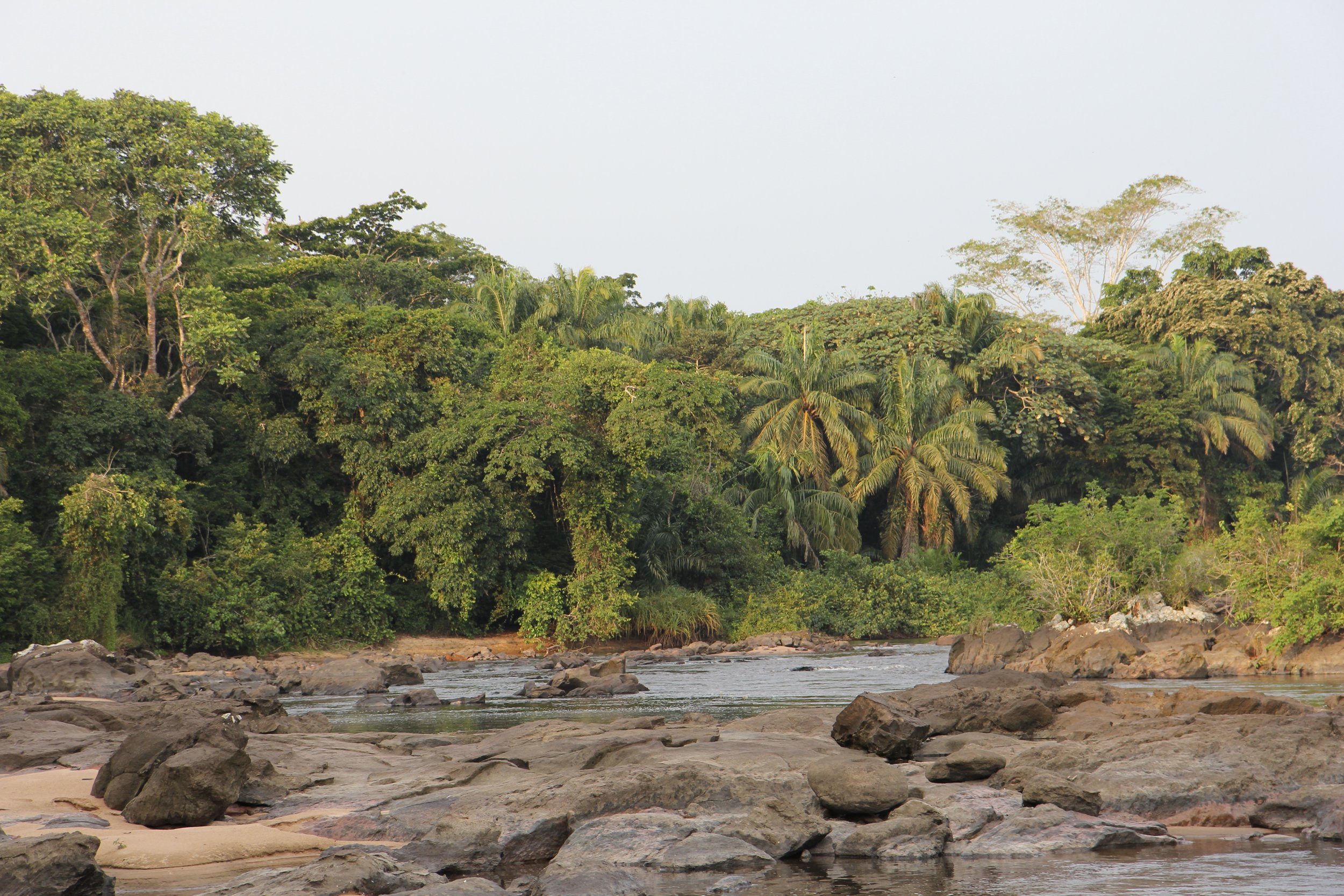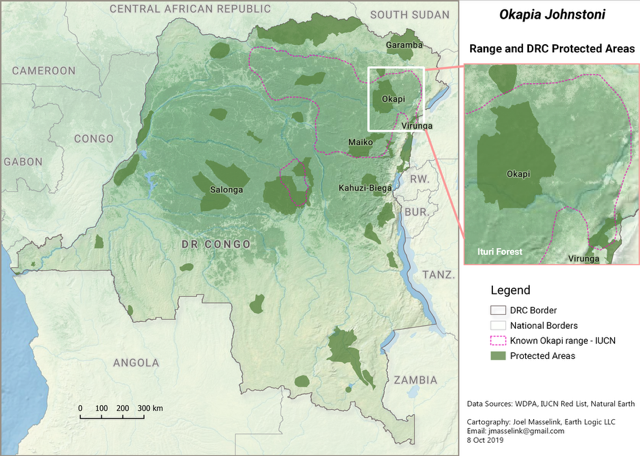
The Okapi Wildlife Reserve
In partnership with WWF and WCS, OCP helped Zaire (now the Democratic Republic of Congo) establish the Okapi Wildlife Reserve (OWR) in 1992—securing vital habitat for this elusive species. OWR was recognized as a UNESCO World Heritage Site in 1996.
Despite decades of progress, okapi populations have declined by 33% due to threats like illegal mining, poaching, and armed conflict.
With your support, we can reverse this trend.
OWR is a critical sanctuary in the heart of the Ituri Forest, DRC
Home to:
The stable and protected population of okapi in the wild
A rich diversity of species, including endangered species such as the okapi, chimpanzees, forest elephants, leopards, bongos, and many unique plants and insects, all contributing to its vital role in securing global biodiversity and ecosystem health.
17 primates, 350 bird species, 101 mammals species
Location: Epulu, DRC (1°21’58”N, 28°34’38”E)
Size: 13,700 km² – one of the largest protected tropical rainforests in the Congo Basin (size of the state of New Jersey)
Core zone: 2,820 km² fully protected refuge for wildlife - no human activity allowed.
Why It Matters
Located in Africa’s most biodiverse country and a globally recognized as one of the16 Megadiverse nations in the world
Stores large amounts of carbon dioxide in its immense tree cover, playing a crucial role in regulating global climate by helping to mitigate climate change
Supports over 100,000 people's basic needs
Sustains Indigenous Mbuti and Efe peoples culture and lifestyle
Supports local communities through food security, health care, conservation education and cultural preservation
Growing Threats to the Okapi and Its Habitat
Everyday, the okapi faces growing threats that put its survival at risk:
Demographic Shift: Over two million people have moved to the Ituri region due to conflict induced migration increasing pressure on the forest.
Habitat Destruction: Illegal mining and agriculture are fragmenting the forests of the Okapi Wildlife Reserve, threatening biodiversity and climate stability.
Poaching and Trafficking: Poaching for bushmeat and illegal trafficking of okapi body parts endanger the species.
Socioeconomic Factors: Poverty drives involvement in destructive practices, making sustainable livelihoods crucial for conservation to take hold.
Political Instability: Armed conflict hinders conservation efforts, travel options and endangers staff.
Climate Change: Altered rainfall seasons and rising temperatures threaten the forest’s ecology and reduce agricultural production.




